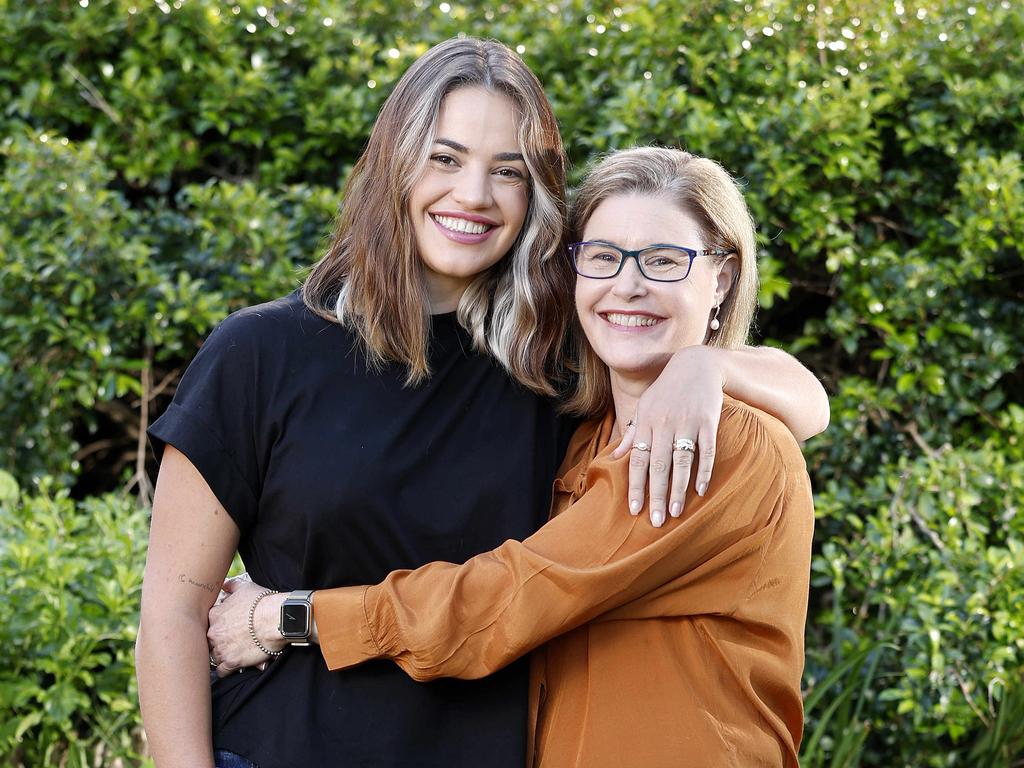Aussie mum Jane Rowan wants social media age limit raised amid worrying rise in eating disorders
An Aussie mum whose daughter suffered from an eating disorder is concerned the pressure young people feel to present a perfect image online is dragging them further into a deep pit of anxiety.
Raising the social media age limit will not only protect our kids, it will liberate them.
As the Executive Director of Eating Disorders Families Australia and a concerned mother of four children, the argument for raising the age limit for access to social media – to at least 16 – is a no-brainer.
Limiting access to social media will liberate our children.
Social media traps our kids in a digital world where popularity, perfection, and performance reign. They are ensnared in an environment where every post, picture and message can be judged by a global audience, placing them under immense pressure to present a perfect image of themselves and often dragging them into a deep pit of anxiety, depression, and self-doubt.

Eating disorders are on the rise with an 86 per cent increase in young people aged 10-19 since 2012. And they’re not just affecting girls. The impact on boys is becoming increasingly clear with two in every five adolescent boys now engaging in disordered eating, compared with three in every five adolescent girls.
But social media reform is about more than just body image and disordered eating.
Social media hijacks our kids’ time and attention, trapping them in addictive loops of scrolling, liking, and seeking validation. As Dany Elachi from the Heads Up Alliance told the Joint Select Committee into Social Media and Australian Society last week, even if the algorithms were serving up rainbows and unicorns, kids would still spend three to four hours on their phones due to the addictive nature of the technology.
Instead of engaging with the real world to form friendships and to discover their unique talents and interests, they’re obsessed with creating acceptable online personas. When we give our kids social media too early, we rob them of the freedom to discover who they really are.

Raising the social media age limit will give our kids space and time to grow into confident, well-rounded individuals. By the time they’re 16 or preferably older, they’re more equipped to handle the emotional and psychological challenges of the online world. They’ve had more time to form an identity grounded in real-world experiences, not the fleeting metrics of social media.
Some argue that kids need social media for connection. But what about the quality of those connections? And do we really know who our kids are connecting with? It’s not likely that they truly know either. Without access to social media, our kids would be forced to connect via phone, text, and in person. They would have to leave the house to meet their friends rather than message over Snapchat or TikTok. I know which type of connection I prefer.

There is no doubt in my mind that raising the age of social media access will serve to minimise harms and protect our young people, but more importantly, it will also liberate them. It will free them from the clutches of comparison and external validation, from the addictive cycles of seeking approval, and from the dangerous normalisation of a range of harmful behaviours.
It will give them back their childhoods and let them be kids with freedom to explore, play, and grow without the constant pressure of conforming to the expectations of a highly critical digital audience.
It will allow them to develop the self-confidence, critical thinking, and emotional resilience they need to thrive – not just online, but in life.
Jane Rowan is the Executive Director of Eating Disorders Families Australia.
More Coverage
Originally published as Aussie mum Jane Rowan wants social media age limit raised amid worrying rise in eating disorders




